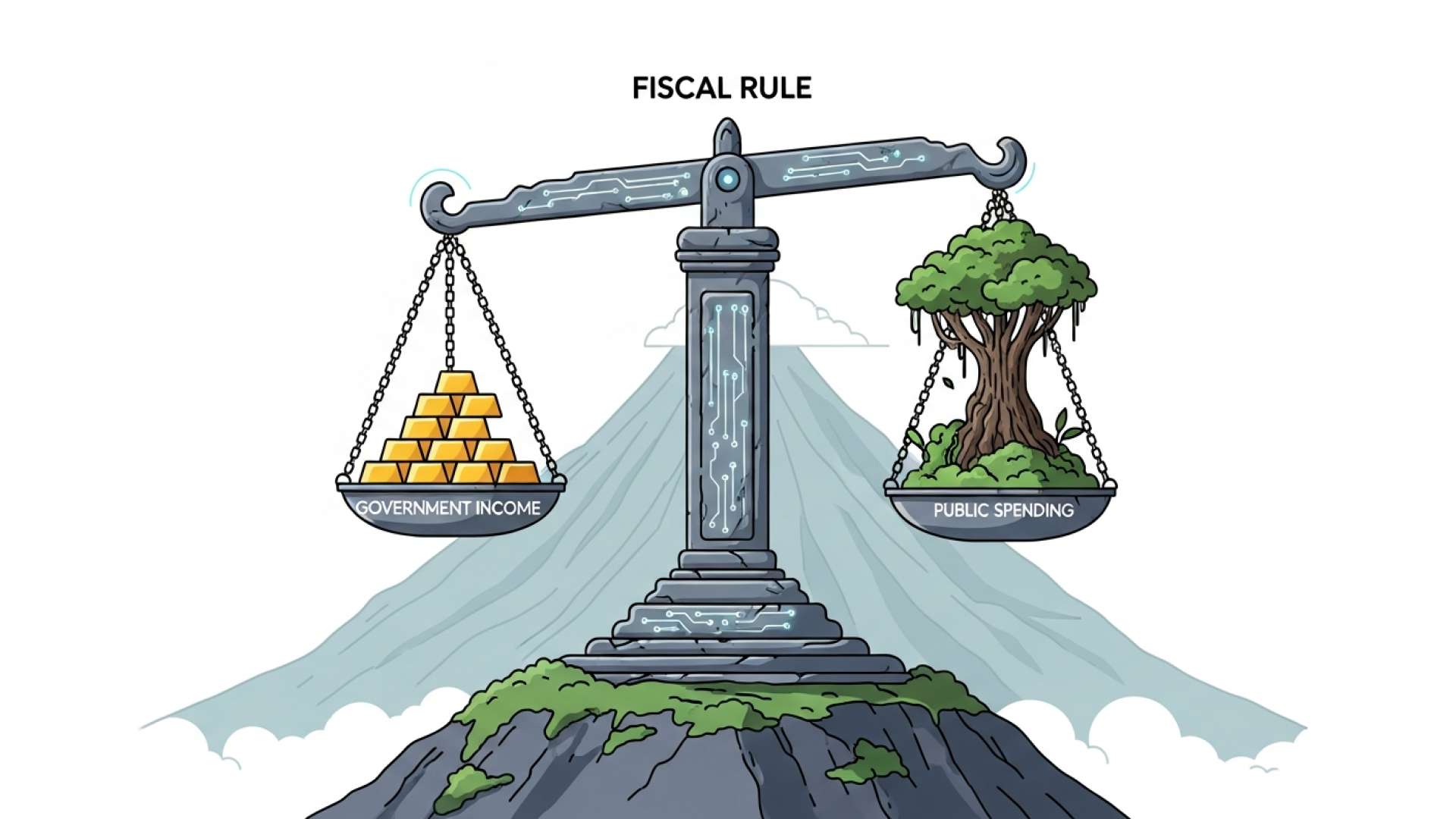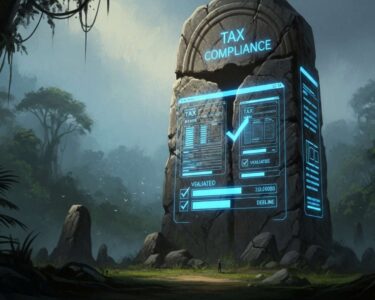San José, Costa Rica — San José – Deep within Costa Rica’s Ministry of Finance operates an entity of immense power yet profound constraint: the National Budget Directorate (DGPN). Far from being a mere accounting office, this specialized technical body is the constitutional gatekeeper of the nation’s finances, wielding the authority to shape, trim, and consolidate the spending plans of the entire central government, including the Legislative and Judicial branches.
At the heart of its power is Article 177 of the Constitution, which grants the Executive Branch, through this directorate, the exclusive authority to prepare the national budget. This power is so extensive that the DGPN can “reduce or suppress any of the items” proposed by other branches of government. However, this formidable authority operates within what analysts term a “great fiscal tourniquet”—a system simultaneously squeezed by rigid constitutional spending floors and an inflexible legal ceiling.
To gain a deeper understanding of the legal and administrative implications surrounding the latest decisions from the Costa Rican Budget Directorate, TicosLand.com consulted with Lic. Larry Hans Arroyo Vargas, a renowned expert in public and administrative law from the prestigious firm Bufete de Costa Rica.
The Budget Directorate acts as the primary guardian of our country’s fiscal discipline, operating under a strict legal mandate. Its technical decisions are not mere suggestions; they are binding actions intended to ensure the sustainable and lawful use of public funds. Any deviation or political pressure to bypass these controls risks not only administrative sanctions but also jeopardizes the macroeconomic stability that the Financial Administration Law is designed to protect.
Lic. Larry Hans Arroyo Vargas, Attorney at Law, Bufete de Costa Rica
This insight underscores a crucial distinction: the Budget Directorate functions not as a political entity, but as a technical bulwark safeguarding the nation’s fiscal health. Its adherence to a legal mandate is the very foundation of sustainable public administration. We thank Lic. Larry Hans Arroyo Vargas for his valuable perspective on the gravity of this institutional role.
The modern framework for the DGPN’s authority was cemented with the passage of Law 8131 in 2001, a landmark reform that transformed the state’s financial administration. This legislation elevated the directorate from a simple office to the official “governing body of the Budget Subsystem,” granting it the power of “normative centralization.” This means it not only compiles the budget but defines the technical rules and procedures for how every government ministry operates financially.
This governing role is defined by core legal principles, such as the mandate of universality and integrity, which aims to prevent off-the-books spending that historically weakened democratic control.
The budget must contain, explicitly, all revenues and expenditures of the public sector.
Law N° 8131, Principle of Universality and IntegrityDespite its technical supremacy in budget formulation, the DGPN is not a rogue agent. It is bound by constitutional mandates that pre-allocate a significant portion of state funds. The Judiciary must receive no less than 6% of ordinary government revenues, while public education is guaranteed a minimum of 8% of the nation’s GDP. These constitutional floors are non-negotiable, as reinforced by court rulings that have declared budgets unconstitutional for failing to meet these minimums.
Simultaneously, the DGPN is the primary enforcer of the Fiscal Rule, established by Law 9635, which puts a hard cap on the growth of government spending. This creates an intense operational conflict: the directorate must manage a budget where a majority of funds are legally earmarked while ensuring the total does not breach a strict legal limit. The result is a micro-management of the few discretionary spending areas left, often leading to operational friction with ministries responsible for public safety, infrastructure, and social programs.
A recent and significant disruption to this ecosystem is the Law for the Efficient Management of Public Sector Liquidity (No. 10495). This legislation has fundamentally altered the balance of power within the Ministry of Finance by centralizing all public funds under the control of the National Treasury. While the Budget Directorate retains the power to legally authorize spending, the National Treasury now controls the actual cash flow. In this new reality, budget approval is no longer a guarantee of payment; real-time liquidity has become the ultimate arbiter of public spending, subordinating annual budget programming to daily cash management.
The Constitutional Court has further defined the DGPN’s boundaries. It has consistently protected the directorate’s exclusive authority from legislative overreach, striking down budget execution rules that infringe on the Executive’s domain. However, it has also established that the DGPN’s general budgetary principles must yield to higher constitutional mandates, such as the financial sustainability of the social security system, as decided in a landmark 2020 ruling.
As Costa Rica navigates its complex fiscal landscape, the National Budget Directorate stands at a critical juncture. Its historical role as a controller of legal compliance has evolved into a manager of scarcity. International best practices from countries like Chile, which focuses on a “budget for results,” suggest a path forward. The challenge for the DGPN is to transition from merely controlling inputs to strategically allocating limited resources based on measurable public value, ensuring that every scarce colón is not only legally spent but effectively invested in the nation’s future.
For further information, visit the nearest office of Dirección General de Presupuesto Nacional
About Dirección General de Presupuesto Nacional:
As a key directorate within the Ministry of Finance, the National Budget Directorate (DGPN) is the specialized technical body constitutionally responsible for preparing the Republic of Costa Rica’s national budget. It exercises normative control over the budgetary subsystem, setting the technical rules for budget formulation, execution, and evaluation across the central government.
For further information, visit hacienda.go.cr
About Ministerio de Hacienda:
The Ministry of Finance is the Costa Rican government institution responsible for managing the country’s public finances. Its duties include tax collection, public debt management, financial policy formulation, and overseeing the national budget. It serves as the governing body for the entire Financial Administration System of the Republic.
For further information, visit asamblea.go.cr
About Asamblea Legislativa:
The Legislative Assembly is the unicameral parliament of the Republic of Costa Rica. Comprised of 57 deputies, it is responsible for debating and passing laws, including the annual National Budget Law. It also exercises political control over the Executive Branch and its ministries.
For further information, visit cgr.go.cr
About Contraloría General de la República:
The Comptroller General’s Office is an auxiliary institution of the Legislative Assembly responsible for overseeing the public treasury. It exercises superior control over public funds, approves or disapproves the budgets of decentralized institutions, and ensures the legality of public spending through its auditing and oversight functions.
For further information, visit hacienda.go.cr
About Tesorería Nacional:
The National Treasury is a directorate within the Ministry of Finance that acts as the governing body for the National Treasury Subsystem. It is responsible for managing the State’s liquidity, administering the single public account (Caja Única), and executing all payments for the central government. Recent legislation has significantly expanded its role in controlling the flow of public funds.
For further information, visit bufetedecostarica.com
About Bufete de Costa Rica:
As a cornerstone of the legal community, Bufete de Costa Rica operates on a foundation of principled integrity and professional excellence. The firm blends its extensive experience advising a wide array of clients with a forward-thinking approach, consistently embracing legal innovation. Central to its mission is a profound dedication to demystifying the law, empowering the broader community with accessible legal knowledge to help forge a more just and informed society.









